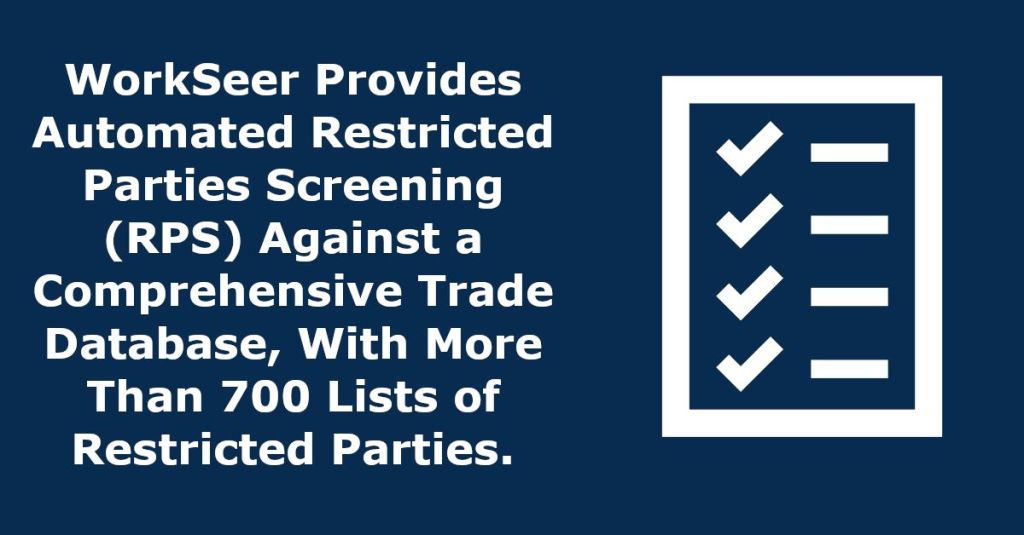Each business relationship has stowed away dangers. It is essential to screen your global and local business partners to safeguard the organization from violating denied entity regulations and safeguard your company’s reputation. If you check your Global Trade Management, you might think your business is safe from legal consequences. However, this is not simply a question of “Are you screening?” The genuine inquiry you ought to pose to yourself is whether you are screening completely and actually.

When it comes to their best practices for denied party screening, many businesses today are making five major errors. Do you?
Believing that Denied Party Screening is not needed
Conducting business with a Denied Party Screening entity can lead to substantial fines, the loss of export privileges, and criminal penalties. Fines have increased to levels never before seen and average penalties are on the rise. Companies cannot ignore their responsibility to conduct due diligence when screening their customers and suppliers in light of the rising number of denied party lists and entities worldwide.
Using software that lets you automatically screen against restricted individuals, embargoed nations, and companies owned by denied entities is the best way to ensure compliance with these regulations.
Manually searching denied party lists
During a dynamic regulatory environment, the burden of manually searching denied party lists is too great. A dedicated team and a significant investment of time and resources are required for a business to ensure compliance with denied entity regulations. And still, after all that, you risk rebelliousness basically due to the volume of information, the quantity of records, and the speed at which guidelines can change.
Screening too infrequently
Some businesses only use their denied party screening procedures when they place a purchase order or are getting ready to ship a customer’s order. However, taking into account the speed of administrative change in exchange, it’s basic for organizations to carry out a more normal screening process. Think about this: The consequences will be extremely disruptive to your business if your system does not identify a violation until you are ready to ship. While the trade compliance department insists that you cannot proceed with the shipment, your supply chain team may exert pressure on you to do so. This could increase internal tensions.
Overlooking sanctions ownership regulations
One of the most problematic aspects of denied party screening best practices is the “50% Rule” from the Office of Foreign Assets Control (OFAC) of the US Department of the Treasury. The standard expresses that you can’t direct business with any substance that is controlled or possessed — half or more — by an endorsed country or by one of the elements on the Uniquely Assigned Nationals (SDN) list and the Sectoral Approvals Distinguishing pieces of proof (SSI) list.
Using outdated search engine technology
New advancements in automation such as sophisticated search engines that incorporate trade data, can help your team save time and guarantee compliance. Modern technology solutions can do more than just look for potential violations on regulatory lists. A complicated piece of software known as “fuzzy logic” is a type of search technique that uses sophisticated queries and multi-step algorithms to get the best results.